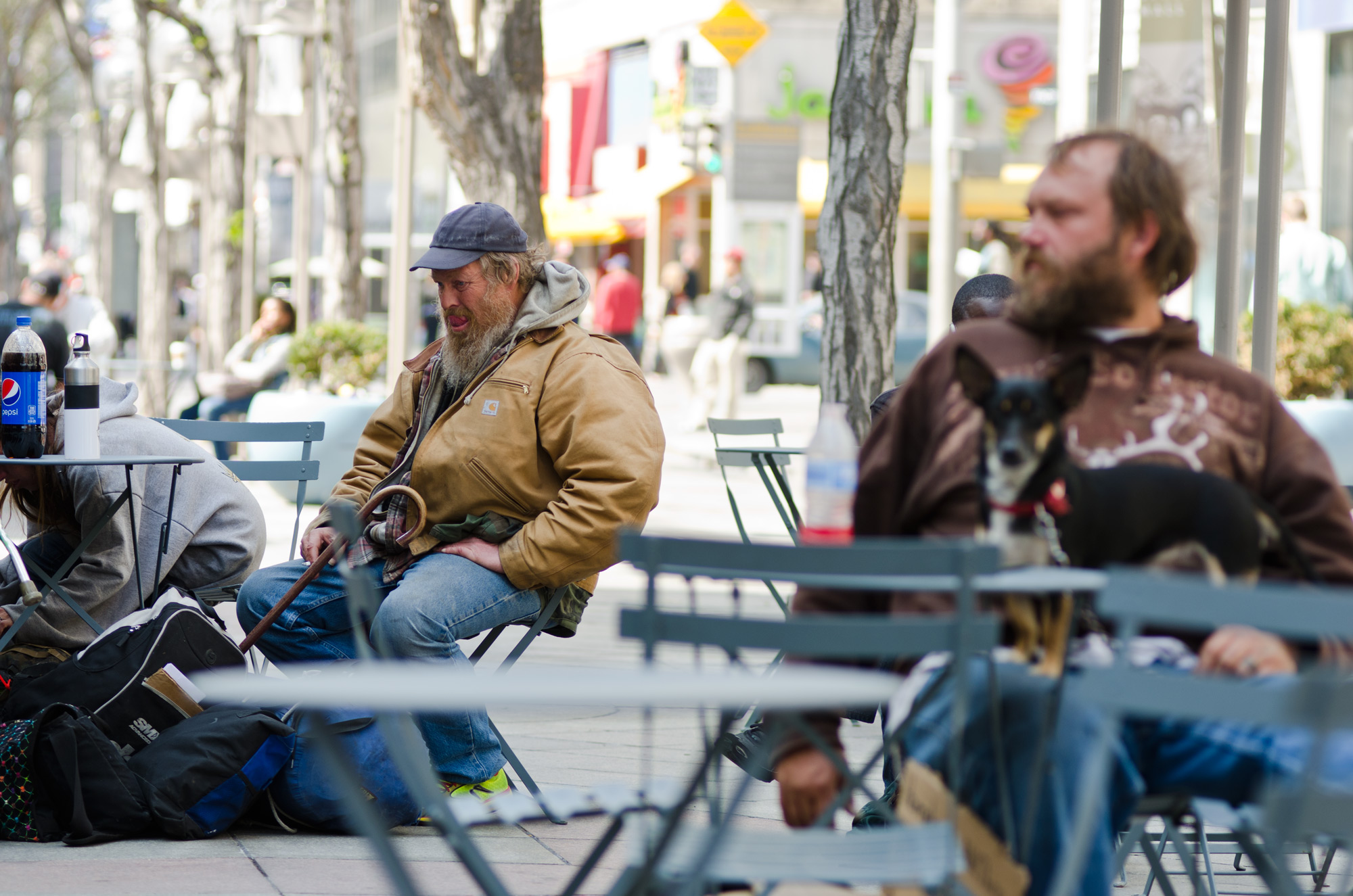
A bench on Denver's 16th Street Mall means something different to Don Boyer than it does for the thousands of tourists and downtown workers that pass him by daily.
It's a place to rest. He has a heart condition and can't walk too far at once.
It's a place to meet other homeless residents like himself. They stick together for safety.
But it's not a place to stay for long. Two or three times a day, he says, police or Business Improvement District workers tell him to move on. That takes a toll on both body and mind, he says.
“It’s nerve-wracking. It really is. What else are we supposed to do? Where else are we supposed to go?”
Boyer is not alone. A new report released Tuesday by CU-Denver political science associate professor Tony Robinson and homeless advocacy organization Denver Homeless Out Loud says that 90 percent of Colorado's homeless population have been harassed by police for a "crime of homelessness." That includes things like sleeping in public, loitering and panhandling.
Colorado cities including Denver, Boulder, Grand Junction, and Colorado Springs have all passed laws in recent years that advocates say unfairly target the homeless. Downtown interests said the homeless were hurting business and some restrictions were needed. But advocates are pushing back with the "Colorado Right to Rest Act" that will have its first hearing in the Colorado Legislature next week.
Report portrays laws as 'counterproductive'
Policies aimed at cleaning up downtown business centers generally tried to get the homeless to "move on," Nathan Woodliff-Stanley, executive director of the American Civil Liberties Union of Colorado, told the Denver Post. The problem with that, said Robinson, is "criminalizing" panhandling and other actions associated with homelessness end up hurting more than they help.
"They increase spells of homelessness by making it harder for people to get jobs and hold jobs, making it harder to get housing because they have a criminal record," he said. "We increase the likelihood they will remain homeless at great taxpayer expense.”
The report surveyed more than 400 homeless people across Colorado. Among its findings:
- 36 percent of respondents have been arrested for a crime of homelessness.
- 83 percent have been denied access to a bathroom.
- 60 percent frequently can't sleep due to police efforts to "move them along."
- 72 percent report "rough treatment" by police or private security.
Chief of Denver's homelessness plan skeptical
The report neglects to hold the homeless accountable for the safety of others, one city official said. Laws, like Denver's "camping ban" passed in 2012, are important ways to keep the public safe, said Bennie Milliner. He's the executive director of Denver's Road Home, the city's 10-year plan to end homelessness approved in 2005.
"What about the other people that use public space?" Milliner said.
Milliner also questioned the veracity of the statistics. He said the arrest numbers in the report are far more extreme than similar figures from the Denver Police Department. (Note, however, that the report uses a statewide dataset. That makes it tricky to compare it to individual cities.)
"We are not arresting people for being homeless," he said.
City attorneys believe the "Right to Rest Act" would not invalidate the city's camping ban, Milliner said.
The bill would establish "basic rights" for the homeless. It would permit them to "use public space in the same manner as any other person without discrimination based on housing status."
The ACLU of Colorado backs the bill, which is sponsored by Democrats Rep. Joe Salazar, Rep. Jovan Melton and Sen. John Kefalas. It faces opposition from the Colorado Municipal League and some Republicans. The bill is scheduled to be heard in the state, veterans, & military affairs House committee next week.








